
Ukraine Emergency
Home
Current Appeals
Ukraine Emergency
3 YEARS ON, KIDS IN UKRAINE CAN'T IGNORE THE WAR.
Since the 24th of February 2022, children have experienced fear, heartbreak, destruction and war. Thousands of kids have been killed and injured, millions have been forced to flee their homes and many more are struggling without clean water, sanitation, electricity and access to healthcare and education.
A generation of Ukrainian kids need our help - we can't let them be forgotten.
We’ve remained on the ground, staying to deliver for children these past 3 years. Our ongoing response is only possible thanks to the generous donor support we've received. While this terrible conflict continues however, there’s still so much essential support needed.
Right now, Ukraine is in the grips of winter. Temperatures can drop as low as -20°C and it barely gets above freezing most days. Any amount you can give will bring warmth, hope and make a life-changing difference for kids in Ukraine.
If you can, please make a donation today to help children in Ukraine.
Help us deliver warm clothing, blankets and fuel briquettes to kids this winter
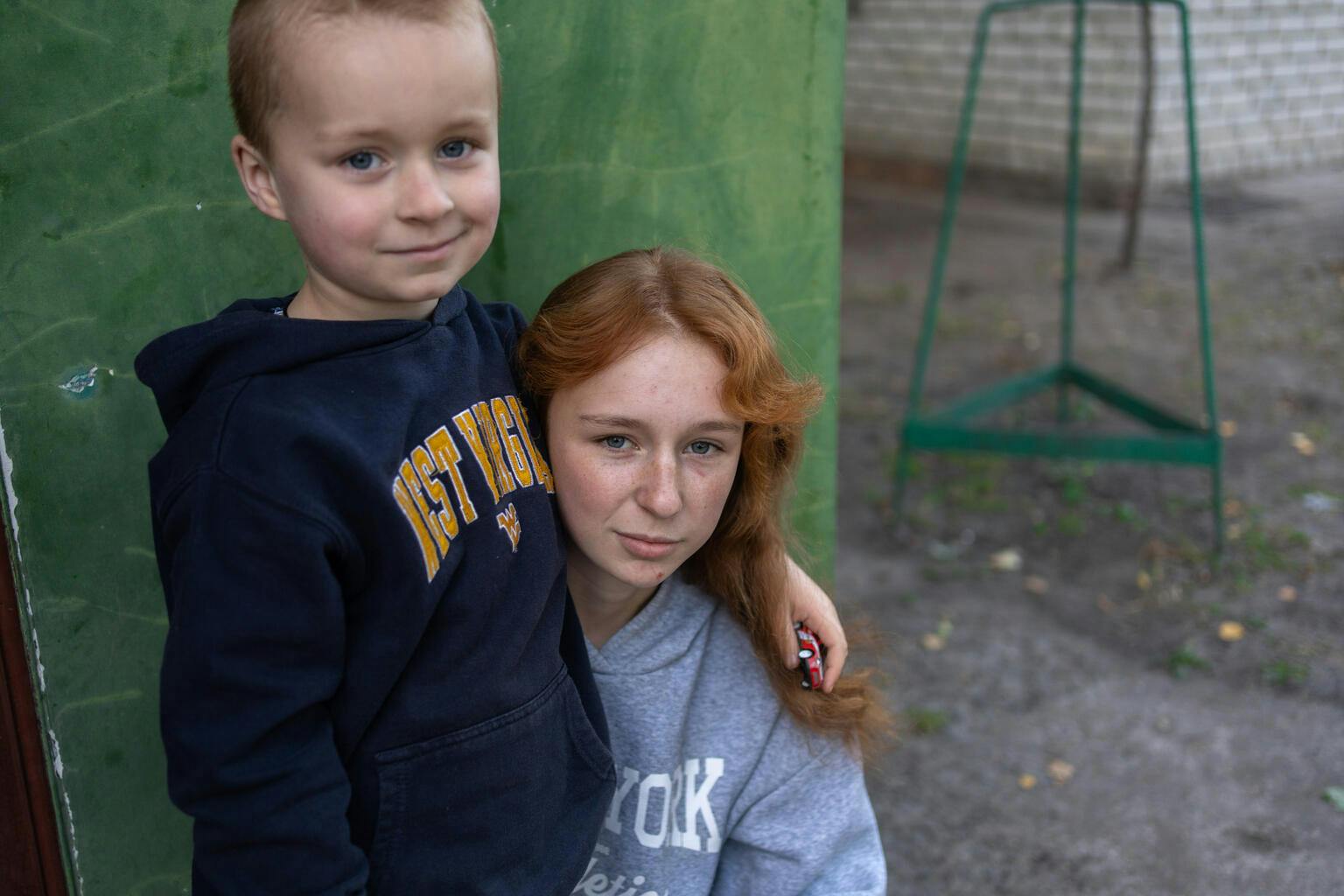
How will my donation help kids in Ukraine?
Children are continuing to miss out on the basics. Support from Kiwis like you is how we’re able to keep providing essential services such as healthcare, clean water, mental health and psychosocial support, warm clothing and blankets, education, and nutrition support.
By working with partners on the ground we’re able to distribute supplies and provide services to ensure isolated and hard to reach children don’t get forgotten.
To continue to fuel our efforts, please donate to support children and their families in Ukraine.
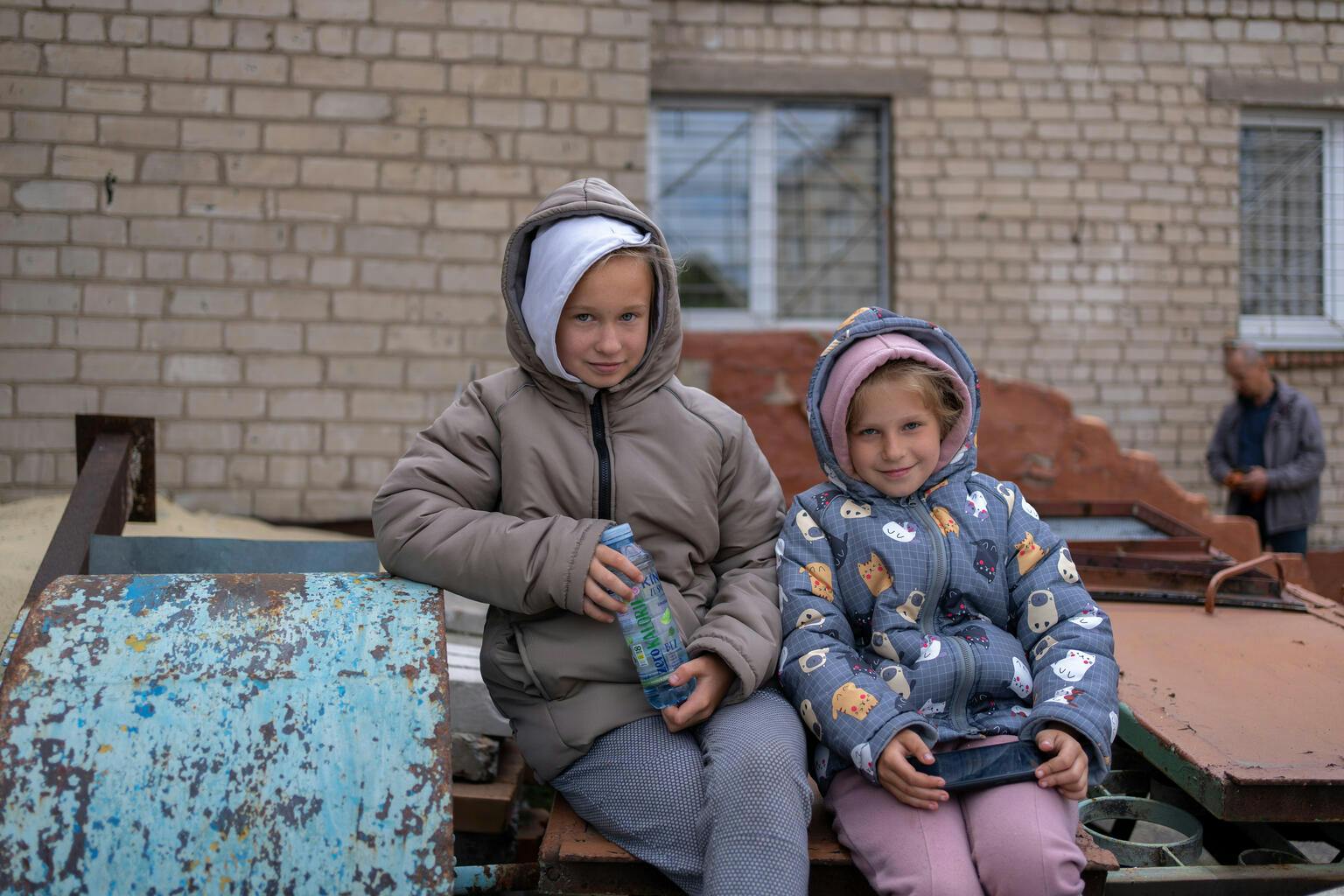
Yulia (7) and Stanislava (10) had to flee their home in Vovchansk when fighting erupted. "It was scary to leave,” says Stanislava, "but we have received help from UNICEF,” she says. The sisters have received hygiene supplies and are wearing the new winter clothes they received at the UNICEF distribution centre in Kharkiv, Ukraine.
How’s UNICEF been responding?
Since the war began, we’ve received many generous donations from kind-hearted Kiwis up and down Aotearoa. A huge thank you to everyone who has donated and provided us with the fuel to continue our lifesaving work.
Here’s a look at what UNICEF donors helped us achieve in 2024:
In 2024, UNICEF together with its Government and implementing partners, reached 9.8 million people with humanitarian assistance, including 2.5 million children.
- We ensured 1.2 million people had the support they needed to access health services and supplies.
- We reached 760,000 children, adolescents and caregivers with mental health and psychosocial support.
- We supported 480,000 children to continue their education in formal or non-formal settings, including early learning opportunities. We distributed learning supplies such as school-in-a-box kits, books and stationery,
- We helped 5.8 million people access safe water for drinking, cooking and personal hygiene.
- We provided 240,000 people from 70,000 households with humanitarian cash transfers.
If you can support us again today, we can continue this life-saving impact for those kids and families still in need.
Kids in Ukraine can't ignore the war. Don't let them be forgotten.
As the conflict enters its fourth year, children need our help more than ever.

Like many kids displaced by the conflict, Halia and Andriy are having to start all over again in the brutal Ukrainian winter. Which is why they need our help.
UNICEF is distributing kids clothing packs, blankets and heating briquettes. But with more than 3.5 million displaced families in Ukraine, more support is needed.

What are the needs of children and families in Ukraine?
As the war in Ukraine enters its fourth year, the situation for millions of kids there remains precarious. We won't stop delivering until we've reached every child who needs us.
Here's a snapshot of the needs in 2025:
- 14.6 million people in Ukraine need of a variety of humanitarian help to survive.
- 9.6 million children and adults need help accessing safe water, sanitation and hygiene.
- 7.8 million people are in need of primary healthcare, vaccinations and nutrition support.
- 1.2 million children are in need of support to continue their education.
- 3.4 million kids need child protection services, including ongoing mental health and psychosocial support.
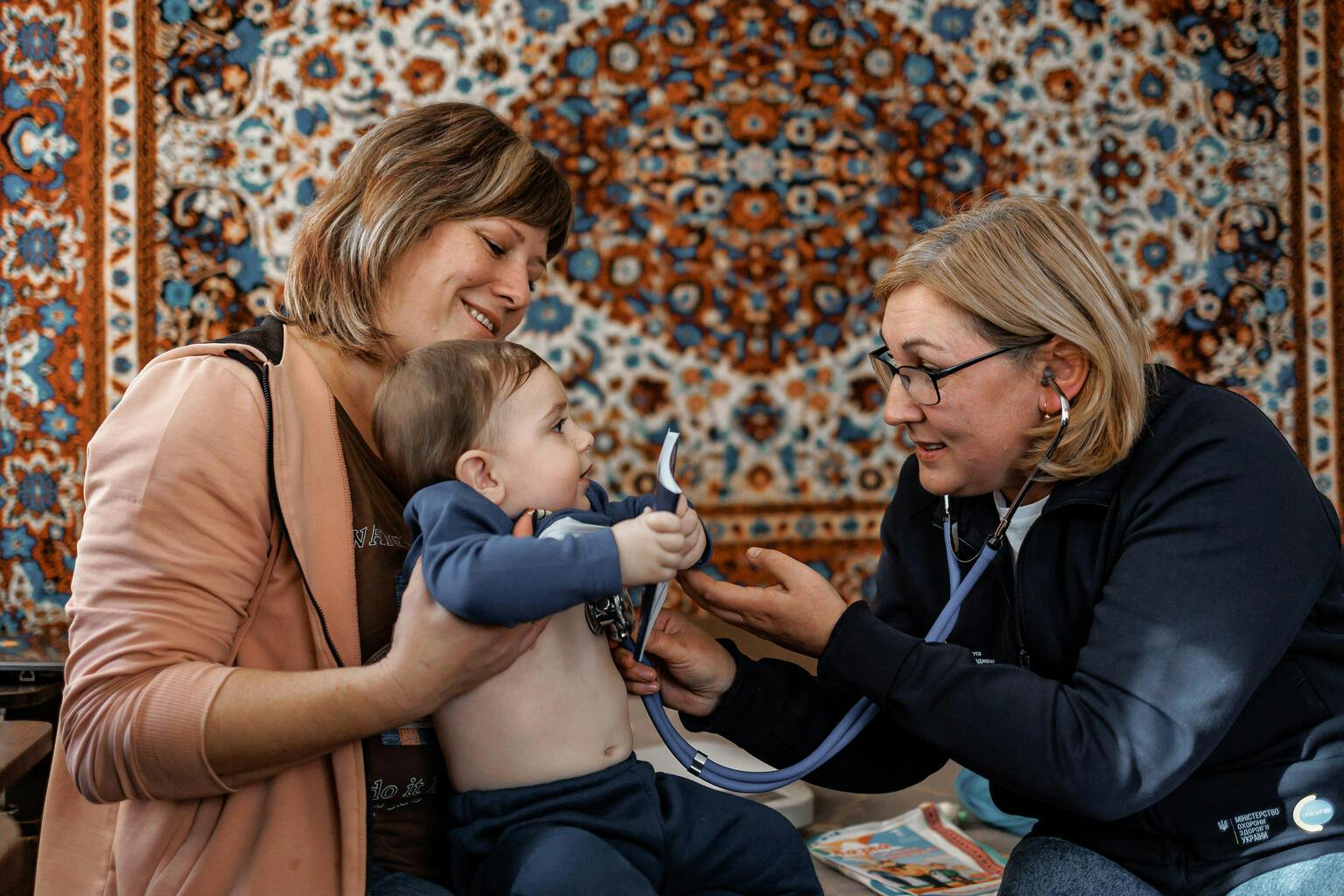
Nurse Svitlana Kuts conducts a health check-up for 10-month-old Daniil during a home visit, measuring his development and providing support to his mother, Tetiana.
"At home, children feel more comfortable, and nurses can observe how he or she behaves," shares Tetiana. The Home Visiting programme, implemented by Ukraine's Ministry of Health in collaboration with UNICEF and supported by international partners, plays a vital role in delivering healthcare and developmental support to children aged 0–3 in remote and underserved areas.
Why donate to UNICEF?
UNICEF has been in Ukraine for more than 25 years, and we’re not going anywhere. We have offices and teams across the country, and in neighbouring countries, working around the clock to deliver for children.
We have decades of experience responding in emergency situations (300+ each year). And with a web of supply hubs and logistic networks across the world, and expert committed staff on the ground – we’re uniquely positioned to maximise the impact of every dollar donated.
Please donate now.
You can help us continue to deliver life-saving supplies for Ukrainian children and their families.
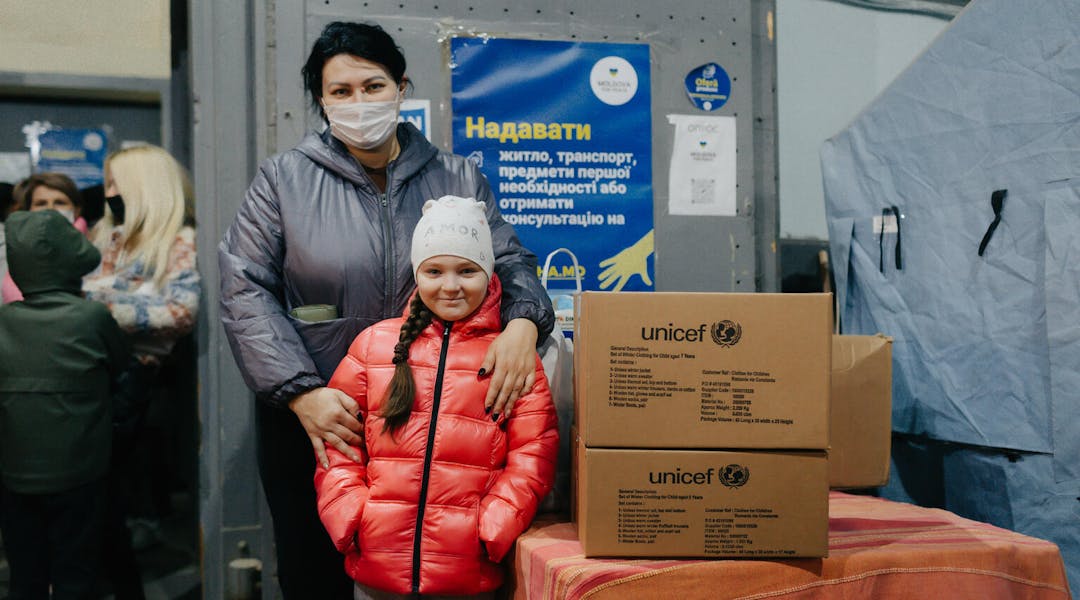
Varvara (7) has received a clothing kit from UNICEF in Chernihiv, Ukraine. Thanks to UNICEF's work, hundreds of refugee families in Moldova have received warm clothes, hygiene products and a little hope.
UNICEF Moldova will continue to provide lifesaving assistance to help parents make their children's lives healthier and safer.
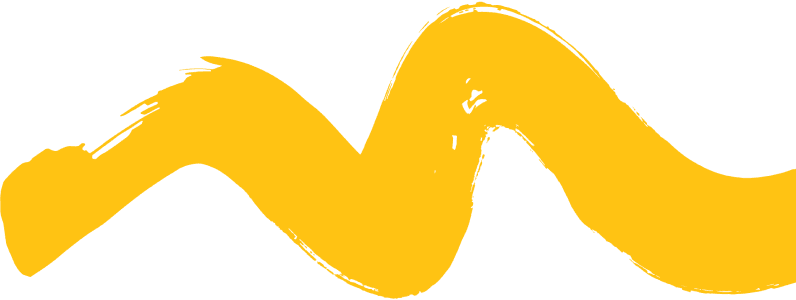
Other ways to donate
If you'd like to donate over the phone, call our friendly team on 0800 243 575.
If you'd like to donate direct to our bank account, please use account 01-0505-0463764-00 and code 'UKR-WS'.
Other ways you can help:
Help us spread awareness of the situation for kids in Ukraine by sharing this appeal with your friends and family.
If you'd like to fundraise with your community to support our work, you can start a fundraiser here.
Disclaimer:
In the event that funds raised exceed UNICEF's funding requirements, the appeal no longer needs funding, or the decision is made to close this appeal, your one-off or ongoing monthly donation will go to our Greatest Need Appeal. Where possible we will communicate this with you, however in some circumstances this might not be possible.
Your life-saving monthly donations will support this appeal for a period of twelve months. After that they will go into our Greatest Need Fund to save and protect kids worldwide.
UPDATED: 7th February, 2025
Donate to this appeal
SSL protected donation
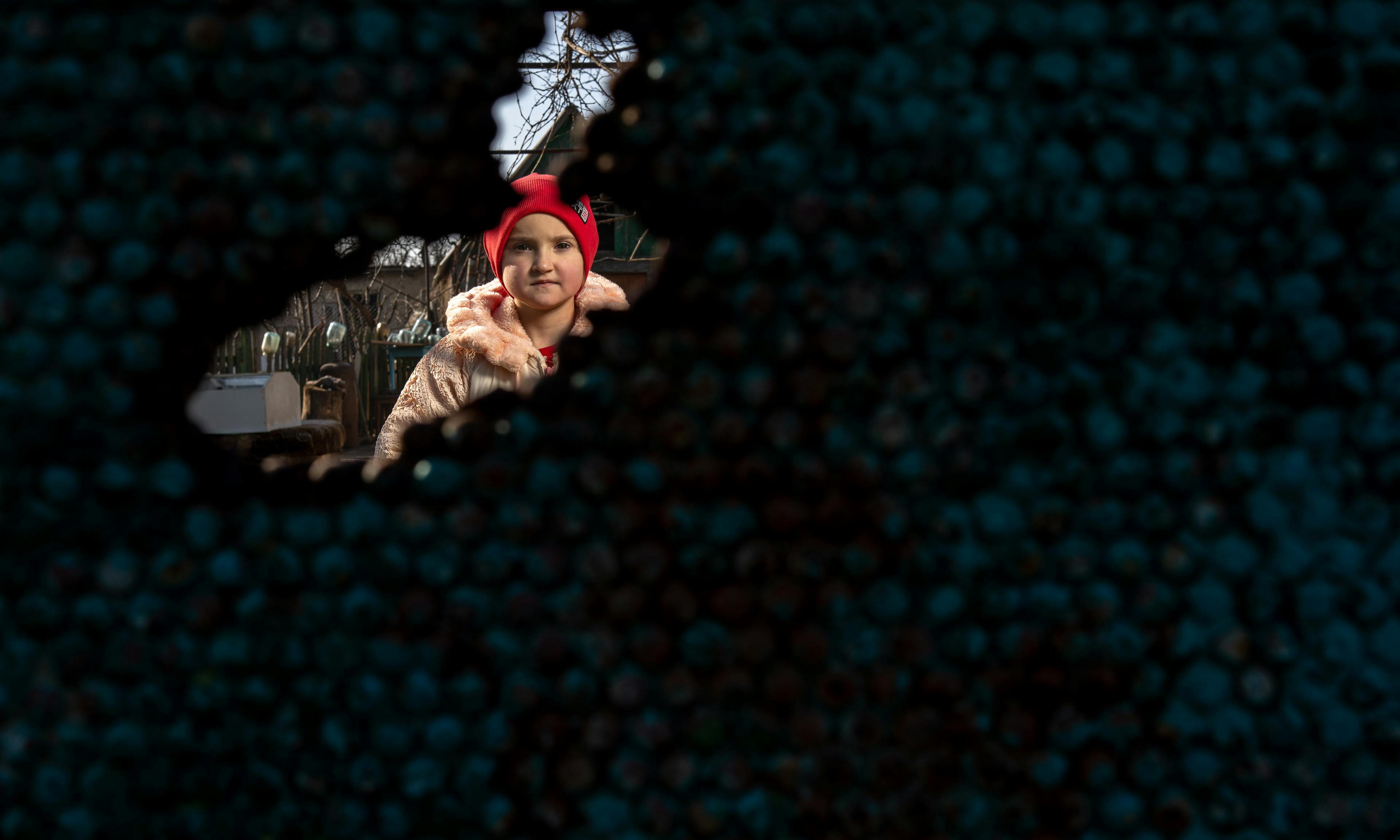
1 in 5 children in Ukraine has lost a relative or friend since the escalation of war three years ago
UNICEF warns of the devastating toll of war for all children in Ukraine
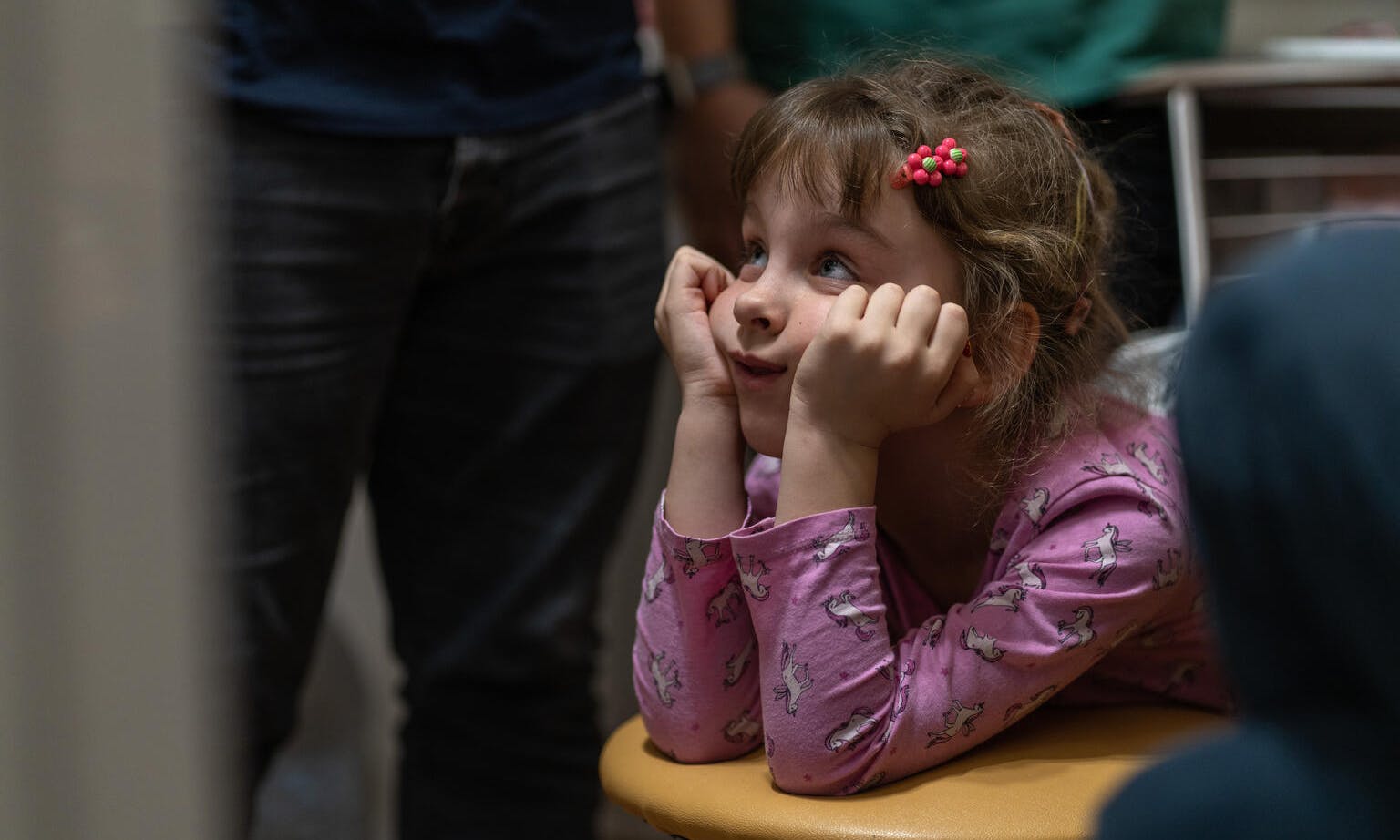
Ukraine: Two years of war causes major mental health crisis in children
As the second anniversary of escalated violence in Ukraine approaches on February 24th, attacks continue unabated and a severe mental health crisis amongst the country’s children has emerged.
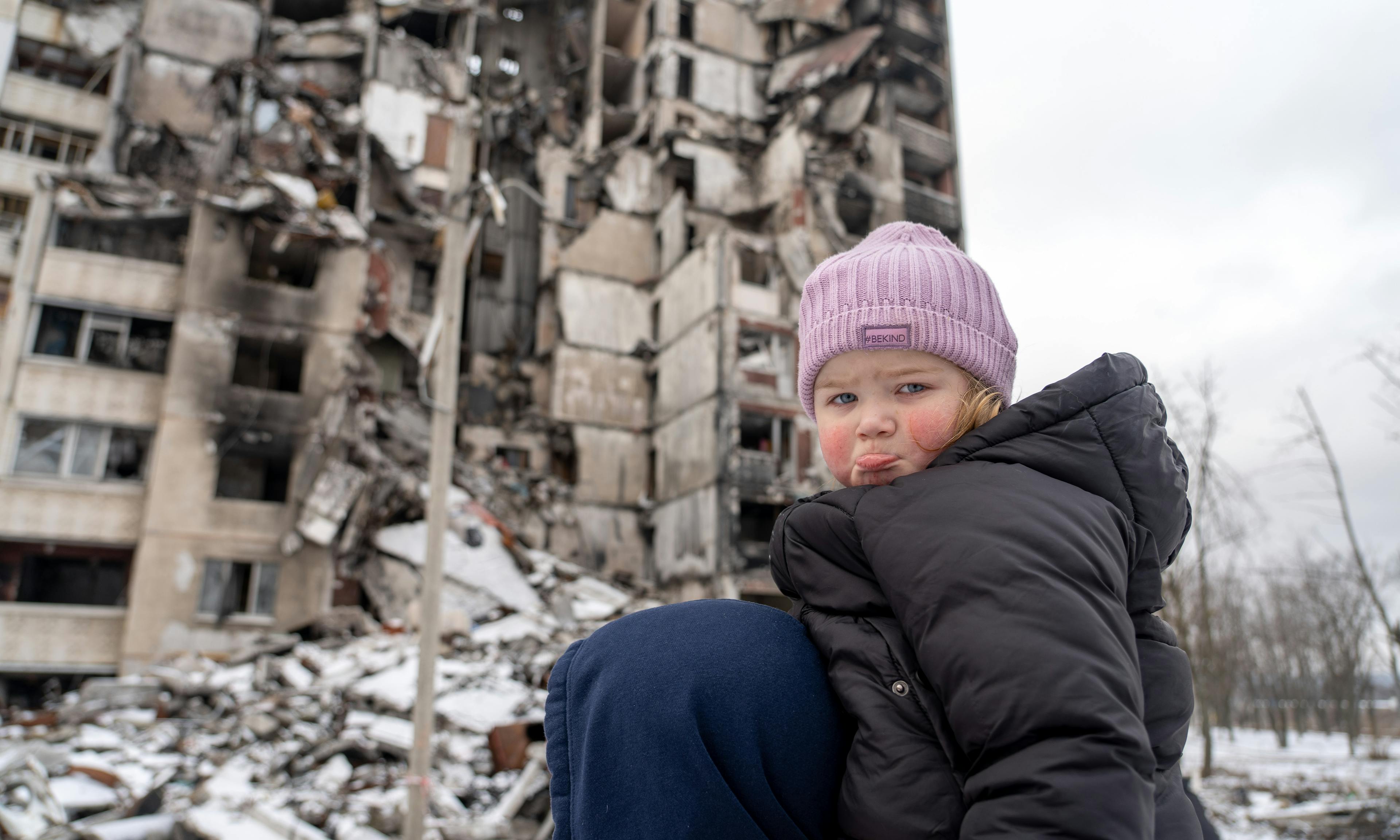
War in Ukraine pushes generation of children to the brink
Children have been killed and injured, and many have lost parents and siblings, their homes, schools and playgrounds. No child should ever have to bear that kind of suffering.
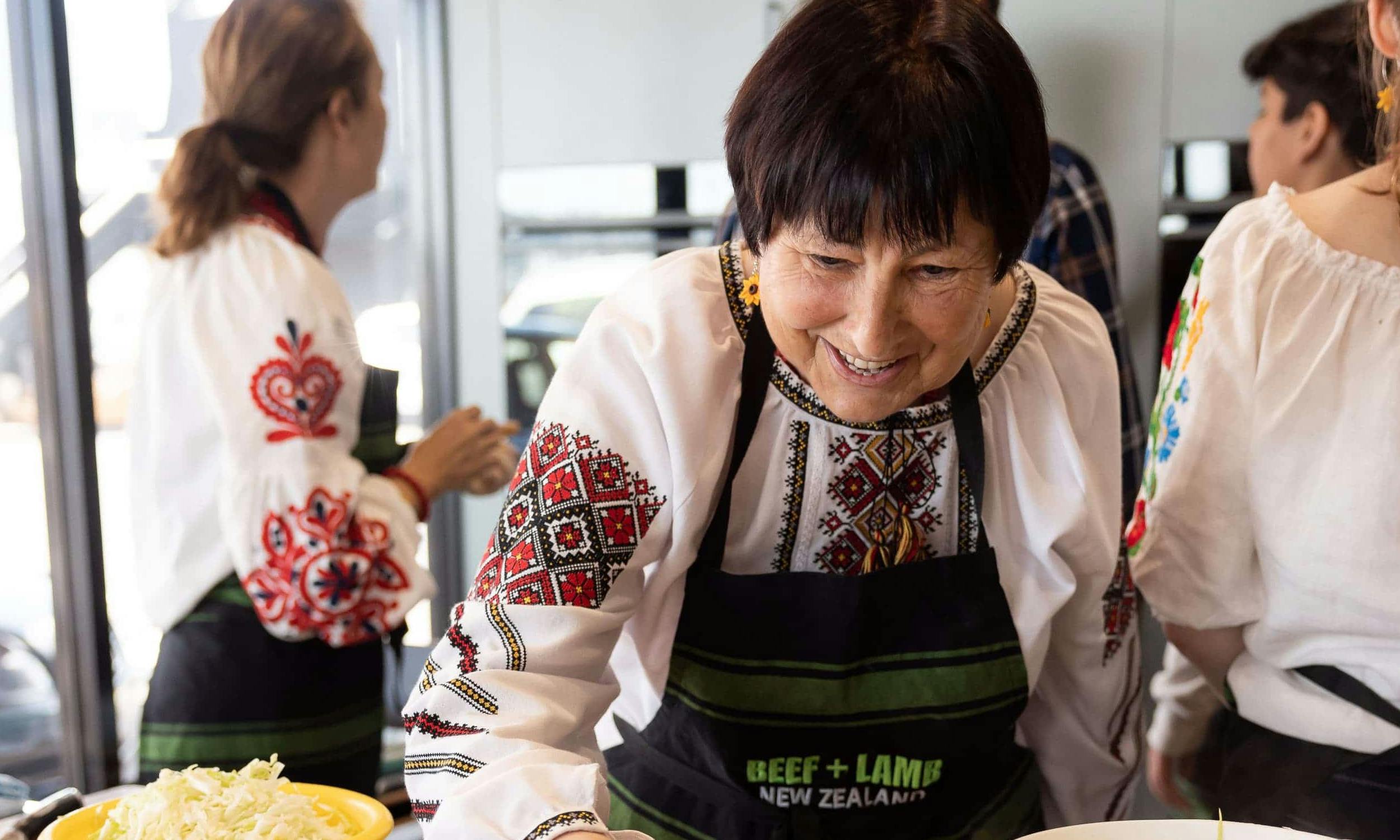
Cooking as an act of love and resistance
UNICEF Aotearoa’s #CookForUkraineNZ campaign is an initiative to show support for New Zealand’s Ukrainian community as well as to support our emergency relief for the children in Ukraine.
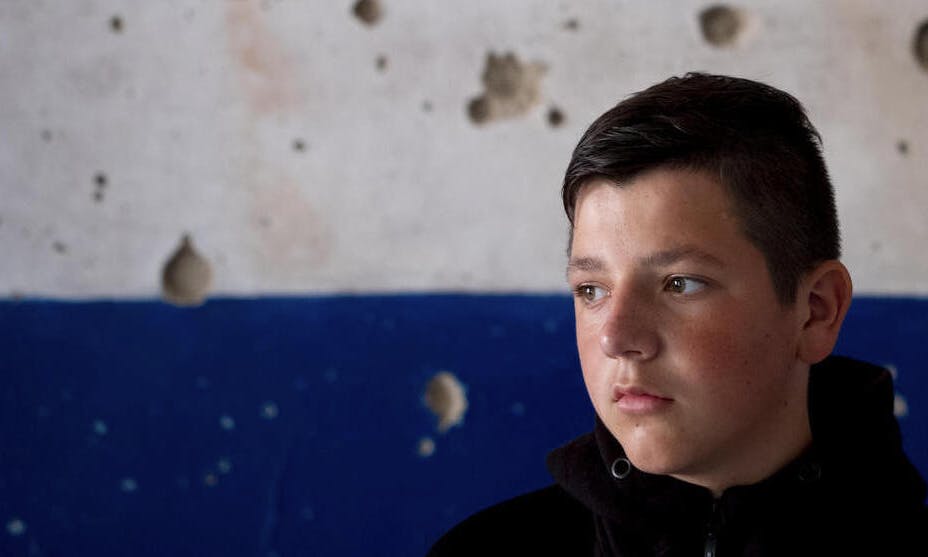
The courage of children in Ukraine one year on
For over a year, the lives of children in Ukraine have been turned upside down. Children have lost loved ones, suffered horrific injuries, hid in shelters, missed school, and fled their homes.